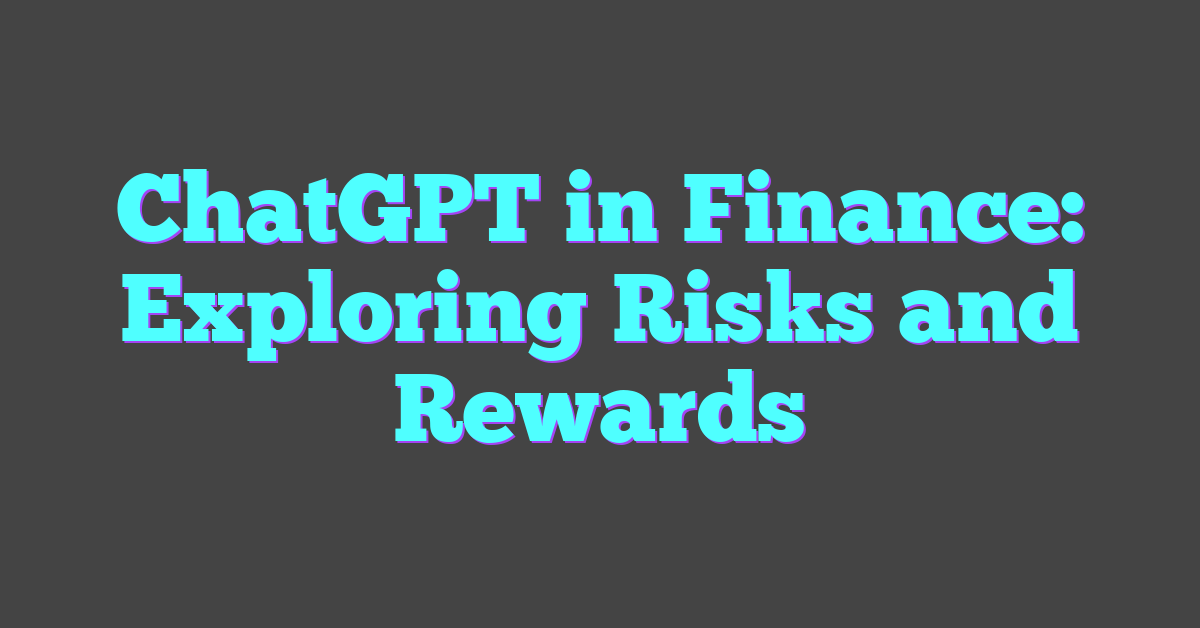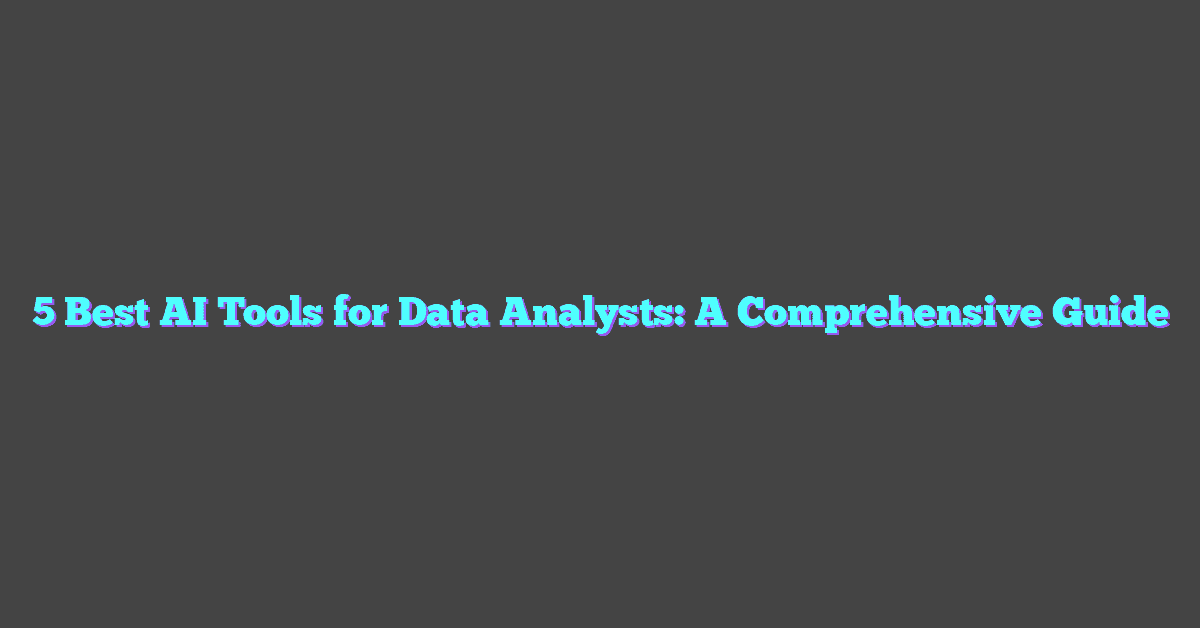The introduction of ChatGPT to the world of finance has created a buzz in the industry, as many have started to weigh its potential risks and rewards. ChatGPT, a generative AI application, has the capacity to revolutionize various aspects of banking and finance by streamlining processes, facilitating smoother communication, and enhancing customer experience. However, as with any disruptive technology, there are concerns regarding the potential challenges it may present, particularly in such a heavily regulated sector like finance.

As ChatGPT continues to gain traction, financial institutions are assessing how this innovative technology can directly impact their operations. Many see the potential for ChatGPT to provide personalized and efficient customer service 24/7, which, given the losses due to fraud faced by financial institutions in recent years, could bring substantial rewards. In contrast, others are cautious about potential risks posed by the use of AI, including regulatory and data handling concerns.
Key Takeaways
- ChatGPT can revolutionize finance with improved communication and efficiency
- Financial institutions are assessing rewards, such as 24/7 customer service, against potential risks like regulatory issues
- The future of AI in finance depends on addressing challenges like data handling and broad sector implementation
Overview of ChatGPT in Finance
https://www.youtube.com/watch?v=jPP-oYhQ3S0&embed=true
Generative AI and Finance
The introduction of ChatGPT and generative AI in the financial sector has brought a significant shift in how businesses manage their finances. This powerful technology offers the ability to process vast amounts of data quickly and accurately, enabling it to identify potential risks and anomalies in real-time 1. This proactive approach has led to enhanced efficiency and better decision-making within the industry.
Advancements in NLP Tasks
The rise of ChatGPT is attributed to advancements in natural language processing (NLP) tasks. NLP technology focuses on understanding and interpreting human languages to enable seamless interaction between humans and machines. ChatGPT has demonstrated remarkable capacity in understanding context and generating human-like responses, making it a valuable tool in various financial processes 2.
The Rise of Virtual Assistants
The success of ChatGPT in the financial sector has paved the way for the emergence of virtual assistants. These AI-powered assistants are capable of handling tasks like customer support, portfolio management, and even trading3. The growing adoption of ChatGPT-backed virtual assistants has resulted in significant improvements in the customer experience and a reduction in operational costs for financial institutions.

In summary, the adoption of ChatGPT in the finance industry has led to numerous benefits, such as enhanced efficiency and better decision-making, owing to the advancements in NLP and the rise of virtual assistants. It also serves as a testament to the growing impact of AI technology in transforming the financial sector.
The Benefits and Rewards
https://www.youtube.com/watch?v=4bxKR68v_zA&embed=true
Enhancing Customer Service
ChatGPT has the potential to greatly improve customer service in the finance industry by providing quick and efficient responses to customer inquiries. With its friendly demeanor, it offers personalized support and can handle multiple customer interactions simultaneously, contributing to better overall customer satisfaction.
Contextual Analysis and Personalized Responses
The ability of ChatGPT to analyze context allows it to provide personalized responses based on individual user preferences and needs. By understanding the nuances of customer interactions and their financial goals, it can offer tailored advice, making customers feel valued and understood.
Efficient Fraud Detection
One significant advantage of ChatGPT in the finance sector is its capacity for efficient fraud detection. By analyzing patterns and identifying anomalies, it can promptly detect fraudulent activities. This not only helps financial institutions protect their customers, but also saves them significant time and resources.
Investment Tips from AI
Lastly, ChatGPT has the potential to democratize access to financial advice, empowering users with investment tips similar to those provided by investment experts. By analyzing trends, risks, and rewards, it can help users make informed decisions about their financial future. Ultimately, ChatGPT could offer valuable guidance, making investing more accessible to a wider range of individuals.
Potential Risks and Challenges
https://www.youtube.com/watch?v=CQ_vOJ56sVc&embed=true
Risk of Biased Data
One potential risk associated with ChatGPT entering the finance sector is the risk of biased data. As ChatGPT learns from a vast amount of data, it may inadvertently include biased perspectives or prejudices. These biases could potentially lead to unfair financial advice or decisions, which could have serious consequences for individuals and the overall market.
Cybersecurity Threats
Another challenge is the increased cybersecurity threats that might arise from using ChatGPT in finance. Cybercriminals could exploit the technology for their malicious purposes, such as obtaining sensitive financial information or manipulating ChatGPT-generated data, resulting in significant damages to individuals and financial institutions. Thus, robust security measures must be established to protect users and their data.
Regulatory Compliance Issues
Financial institutions are governed by strict regulations, and integrating ChatGPT into financial operations could potentially lead to regulatory compliance issues. It’s important that the technology adheres to financial regulations, including safeguarding user data, ensuring fair lending practices, and performing accurate risk assessments. Failing to comply with these regulations could expose institutions to fines, penalties, or other legal consequences.
Risk of Misinterpretation
As ChatGPT is designed to provide natural language communication, there’s a possibility of misinterpreting the generated text, which could have significant ramifications in financial decision-making. This could include inaccurate financial analysis, incorrect risk assessments, or mistaken investment advice. To mitigate this risk, it’s crucial to develop safeguards that ensure the AI-generated statements are clear, accurate, and in-line with the customer’s needs and expectations in a friendly manner.
Artificial Intelligence in The Financial Markets
https://www.youtube.com/watch?v=uIbndeCciL4&embed=true
Impacts on Trading
With the rise of generative artificial intelligence such as ChatGPT, the financial markets are experiencing a shift in trading strategies. AI-driven tools can analyze large quantities of data, making predictions and providing insights faster than human traders. These tools can contribute to improved risk management and increased efficiencies in trading operations.
AI Tools in Hedge Funds
Hedge funds are actively integrating AI technologies to create more competitive strategies. By using artificial intelligence, hedge funds can unearth patterns and trends in financial markets that may have been overlooked before. AI algorithms can automate trade execution, handling high volumes of transactions with increased accuracy, and allowing funds to respond to market fluctuations in real time.
Risks in Flooding Finance Markets
Despite the potential benefits, the integration of AI tools like ChatGPT into financial markets also comes with potential risks. As more AI-driven algorithms flood the finance industry, concerns about algorithmic trading causing market volatility and instability have arisen. Additionally, dependencies on AI systems might lead to a lack of human oversight, exacerbating these risks.
In conclusion, the implementation of artificial intelligence in the financial markets offers opportunities for better predictions, faster decision-making, and increased efficiency. However, the potential risks must be carefully managed to ensure the long-term stability and security of the industry.
Regulation of AI in Finance
https://www.youtube.com/watch?v=LR1aOl7Z2wk&embed=true
Meeting Legal Frameworks
AI technologies are gradually entering the world of finance, making it imperative for the industry to address regulatory concerns. Ensuring AI systems comply with existing legal frameworks is crucial to minimize risks and maintain trust. Financial institutions, governments, and developers must work together to establish appropriate guidelines and practices that enforce transparency, fairness, and accountability in AI-driven financial operations.
Addressing GDPR Violations
AI in finance may potentially breach the stringent data protection rules laid out by the General Data Protection Regulation (GDPR). User privacy and data security are core considerations; thus, integrating AI systems must be handled with caution to prevent violations. Employing strategies like anonymizing data and incorporating privacy-enhancing technologies can help curb the risks and maintain compliance with GDPR standards.
AI and Ethical Use
Adopting a friendly and ethical approach to AI in finance means ensuring that its applications align with human values and social norms. Stakeholders should prioritize the ethical use of AI by considering potential biases, unintended consequences, and wider societal implications. Fostering an open discourse on AI ethics can help create a collaborative environment that promotes ongoing development and improvement of AI-driven solutions in the financial sector while mitigating potential harm.
ChatGPT in Financial Literacy
https://www.youtube.com/watch?v=oxtvyqLtCbU&embed=true
As ChatGPT makes its way into the finance sector, it offers new possibilities in enhancing financial literacy. This generative AI application learns from data to create original outputs, such as producing written summaries and answers to questions. In this context, two noteworthy applications of ChatGPT include DIY investor consulting and financial education.
DIY Investor Consulting
With the rise of DIY investing, ChatGPT can be a valuable tool for those looking to manage their investments independently. The AI can analyze vast amounts of financial data, providing insights and recommendations to investors in a friendly tone. Additionally, ChatGPT can help explain complex financial concepts and offer suggestions on investment strategies, making it easier for individual investors to navigate the world of finance.
Implications for Financial Education
Financial education plays a crucial role in empowering individuals to make informed financial decisions. ChatGPT can revolutionize the way people learn about finance, as it is capable of breaking down complex topics into understandable language. This AI tool can also create personalized learning experiences, catering to the needs and preferences of each learner.
Not only can ChatGPT be integrated into traditional financial education programs, but it can also be used to develop and implement new educational resources, further democratizing access to financial literacy tools. In turn, this has the potential to increase the overall level of financial literacy across various demographics, ultimately leading to more informed and confident investors.
Sensitive Data Handling

Financial institutions have already started integrating ChatGPT into their systems, bringing both risks and rewards in the handling of sensitive data. In this section, we’ll discuss the importance of protecting customer’s data and how AI can both help and create challenges relating to fraudulent transactions.
Protecting Customer’s Data
One of the main concerns with ChatGPT in the finance industry is the management of sensitive data, which includes personal, financial, and confidential information. Ensuring data integrity with advanced security measures is crucial to prevent unauthorized access and accidental disclosure of sensitive information1. Following best practices, financial institutions should:
- Implement proper access control measures to limit the amount of data exposed to ChatGPT
- Regularly review the data used by the AI system to ensure no confidential information is accidentally included
- Continuously monitor and update the security protocols surrounding ChatGPT to stay current with potential threats
AI and Fraudulent Transactions
AI systems like ChatGPT can help detect fraudulent transactions by analyzing patterns and identifying anomalies2. By leveraging powerful natural language processing capabilities, these systems can quickly alert financial institutions to suspicious activities and help them mitigate the risks. At the same time, AI-powered technology can also be used by malicious actors to create fraudulent schemes, making it a double-edged sword.
To safeguard against this, businesses should:
- Actively share insights and information related to potential fraud schemes with other financial institutions and regulatory authorities
- Continuously train the AI system to recognize and adapt to new and evolving types of fraudulent activities
- Review and validate any suspicious transactions detected by the AI system before taking action
Implementing these measures helps ensure that sensitive data is handled securely while also maximizing the benefits that ChatGPT provides in the finance industry.
ChatGPT Across Different Sectors
https://www.youtube.com/watch?v=x7RnJQ3stQ0&embed=true
As the popularity of ChatGPT continues to grow rapidly, its potential applications in various sectors are being explored. Taking a closer look at two such sectors, we can examine the role of ChatGPT in Government and Healthcare.
ChatGPT in Government
The friendly, conversational nature of ChatGPT makes it a valuable tool for government agencies in streamlining communication and improving public services. Here are a few potential applications in the government sector:
- Public connectivity: ChatGPT could help bridge the gap between government agencies and the people they serve, providing users with quick, accurate information related to policies, assistance programs, and other services.
- Simplifying complex processes: Governments often deal with complex and time-consuming processes. ChatGPT could expedite the delivery of data and help users complete forms and applications more efficiently.
ChatGPT in Healthcare
Within the healthcare sector, ChatGPT has the potential to revolutionize the way professionals and patients interact with health-related information.
- Healthcare chatbots: With its conversational abilities, ChatGPT could be used to create chatbots that provide general information, appointment scheduling, or even mental health support for patients.
- Medical research assistance: The AI-powered capabilities of ChatGPT could assist medical professionals in staying up-to-date with the latest research, synthesizing complex medical data, and uncovering novel insights that could lead to improved patient outcomes.
As the use of ChatGPT expands in different sectors, like government and healthcare, it is essential to keep in mind potential pitfalls while leveraging its benefits. The opportunities presented by ChatGPT are not without risks, such as accuracy, privacy, and ethical concerns. However, by navigating these challenges carefully, organizations can capitalize on the potential of this technology and deliver improved experiences across various industries.
Looking Ahead

Incorporating AI in Long-Term Corporate Strategy
As the finance sector embraces the potential of AI-driven tools like ChatGPT, it is crucial for businesses to incorporate them into their long-term corporate strategies. By doing so, organizations can streamline processes, improve efficiency, and make better-informed decisions. For example, firms such as Morgan Stanley have recognised the value of generative AI applications in shaping their autonomous finance functions.
However, it is essential to approach the integration of AI in finance with caution, taking into consideration both the risks involved and the benefits that these powerful tools can offer. One key area to focus on when implementing an AI-centric strategy is ensuring that AI systems are ethically designed and transparently managed, minimizing potential issues related to cybersecurity and user privacy.
Industry Leaders’ Insights
ChatGPT’s rising presence in finance has drawn attention from industry leaders, including those from BloombergGPT and Citadel. As these major players analyze the risks and rewards, several insights emerge.
- Adopting AI technologies can revolutionize customer experience by providing personalized services and tailored financial advice.
- The integration of AI-driven systems like ChatGPT may automate repetitive tasks, freeing up time for employees to focus on more critical aspects of their work.
- Despite the potential benefits, industry leaders must also consider ChatGPT’s role in introducing new cybersecurity threats. The growing reliance on AI in finance should be accompanied by stringent security measures to deter any potential data breaches.
In conclusion, the arrival of ChatGPT in the finance sector presents a plethora of opportunities and challenges. As the industry moves forward, businesses should focus on adopting these AI-driven tools responsibly and with the right balance of innovation and security. In doing so, finance organizations can drive growth and improve their services while minimizing potential risks.
Frequently Asked Questions

What are the potential benefits of ChatGPT in financial analysis?
ChatGPT offers multiple benefits for financial analysis. It can help analysts to quickly generate reports, extract useful insights, and make data-driven decisions. Additionally, it can assist in tracking expenses and budgets and can be used for financial projections, M&A, investments, and financing. With its powerful natural language processing capabilities, ChatGPT holds the potential to streamline and revolutionize the finance industry.
How can LLMs be applied in banking?
Large Language Models (LLMs) like ChatGPT can be utilized in various aspects of banking, such as automating customer support, providing personalized financial advice, transaction categorization, fraud detection, and regulatory compliance. By leveraging LLMs, banks can significantly improve their efficiency, offer better services to customers, and reduce operational costs.
What are some possible drawbacks of utilizing ChatGPT in finance?
Though ChatGPT offers several benefits, there are some potential drawbacks. One concern is the accuracy of the generated content, which must be verified before decisions are made. Another issue is data security and privacy, as confidential financial information might be exposed to potential security risks. Lastly, an over-reliance on LLMs may cause human expertise in finance to be undervalued, potentially leading to a reduction in critical thinking and risk assessment abilities.
In which finance areas can ChatGPT be most useful?
ChatGPT can be most useful in areas such as financial analysis, reporting, and forecasting. It has the potential to make a significant impact in automating repetitive tasks, analyzing large volumes of financial data, and providing quick insights. It can also be beneficial in budgeting and cash flow projections, as well as in making informed investment decisions.
How does GPT compare to traditional financial models?
GPT-based models, like ChatGPT, differ from traditional financial models because they are designed to understand and generate human-like language while learning from vast amounts of data. Traditional models, on the other hand, typically focus on specific financial indicators and require predefined formulas or statistical methods. ChatGPT can help in generating insights that might not be easily captured by traditional financial models, but its accuracy and reliability should always be verified by experts.
What are the most common use cases for LLMs in the finance industry?
LLMs are being increasingly adopted in the finance industry for various applications, such as automating customer support, providing personalized advice, risk assessment, fraud detection, and aiding in regulatory compliance. By utilizing LLMs, finance companies can improve their services, streamline operations, and accelerate the decision-making process.
Footnotes
https://dasha.ai/en-us/blog/chatgpt-in-finance-the-comprehensive-handbook-for ↩ ↩2
https://www.gartner.com/en/newsroom/press-releases/2023-04-27-what-chatgpt-means-for-the-finance-function?sf266277577=1 ↩ ↩2
https://www.fintechnews.org/chatgpt-is-coming-to-finance-so-lets-talk-about-the-risks-and-rewards/ ↩




